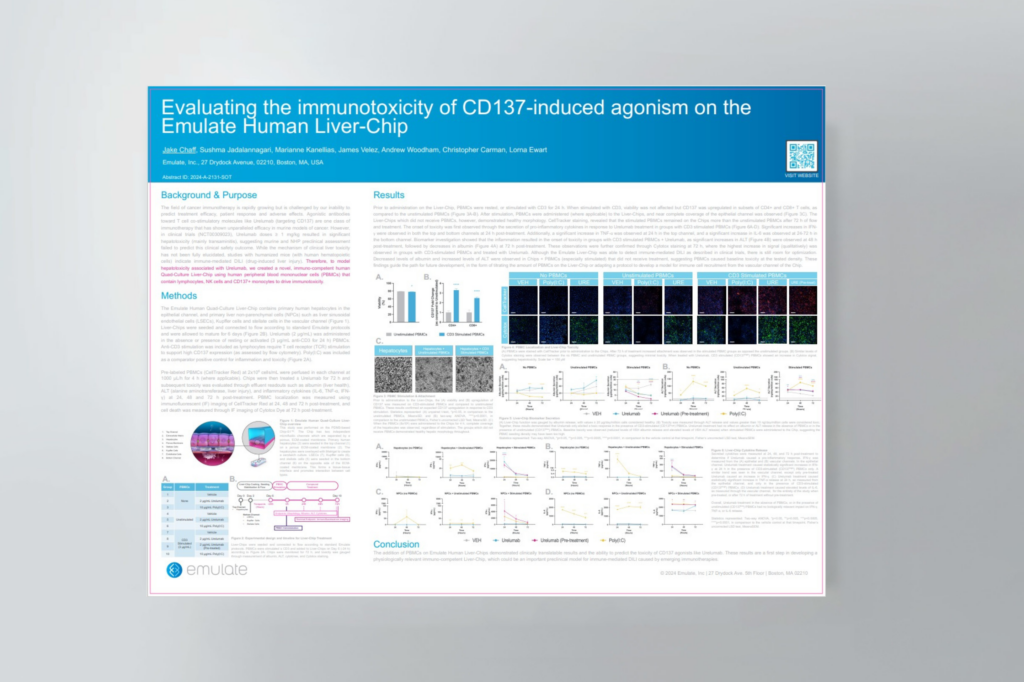Abstract
The field of cancer immunotherapy is rapidly growing but is challenged by our inability to predict treatment efficacy, patient response and adverse effects. Agonistic antibodies toward T cell co-stimulatory molecules like Urelumab (targeting CD137) are one class of immunotherapy that has shown unparalleled efficacy in murine models of cancer. However, in clinical trials (NCT00309023), Urelumab doses ≥ 1 mg/kg resulted in significant hepatotoxicity (mainly transaminitis), suggesting murine and NHP preclinical assessment failed to predict this clinical safety outcome. While the mechanism of clinical liver toxicity has not been fully elucidated, studies with humanized mice (with human hematopoietic cells) indicate immune-mediated DILI (drug-induced liver injury). Therefore, to model hepatotoxicity associated with Urelumab, we created a novel, immuno-competent human Quad-Culture Liver-Chip using human peripheral blood mononuclear cells (PBMCs) that contain lymphocytes, NK cells and CD137+ monocytes to drive immunotoxicity.

